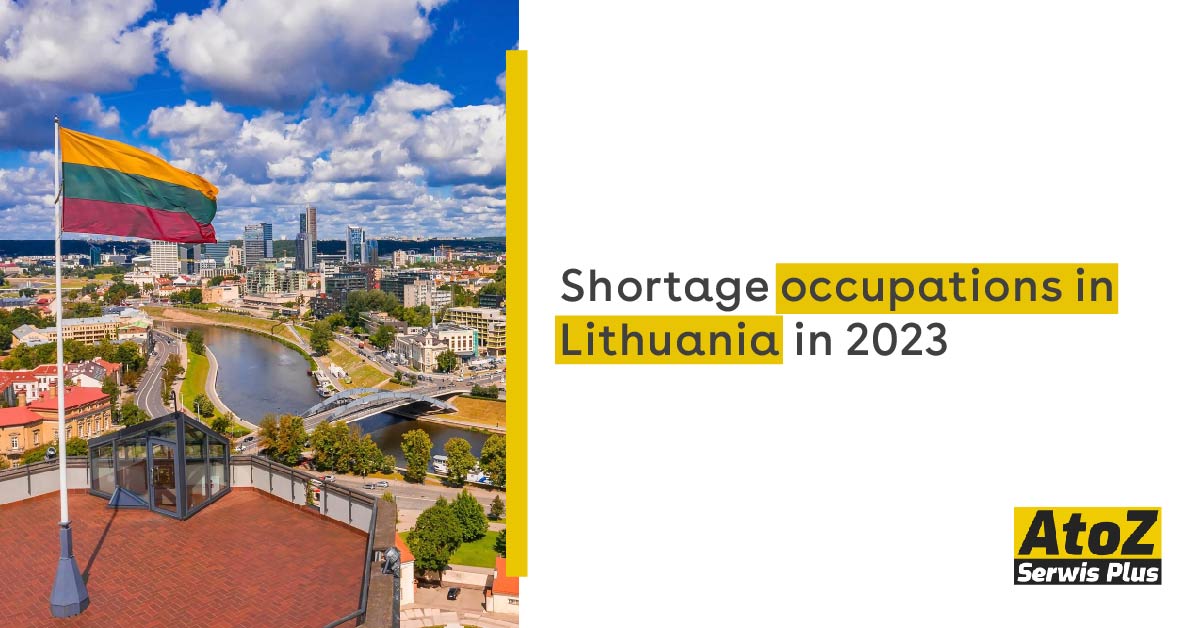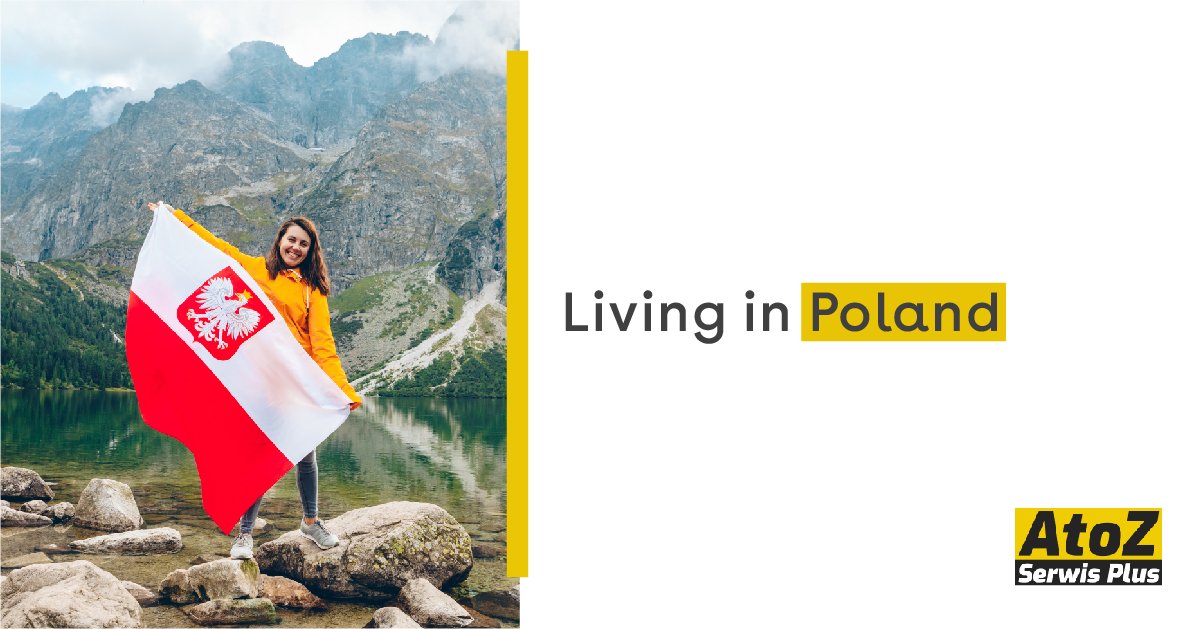

What are the unskilled jobs for foreign workers in Poland?
Are you a foreigner looking to start a new life in Poland? Finding work can be challenging, especially if you're not fluent in Polish or lack specialised skills. But don't worry – there's hope! Poland offers numerous opportunities for unskilled foreign workers, providing a stepping stone to build a better future.
Imagine arriving in Warsaw, Krakow, or Gdansk, eager to embrace the Polish culture but unsure where to begin your job search. The good news is that Poland's growing economy and labor shortages have created a demand for workers across various sectors. From bustling restaurants to thriving warehouses, unskilled jobs are abundant and accessible to foreigners. But what exactly are these jobs, and how can you secure one?
This blog post explores the world of unskilled jobs for foreign workers in Poland. It covers common positions in different industries, discusses requirements for foreign workers, and provides tips on finding job opportunities. Whether looking for temporary work or hoping to establish a long-term career, understanding the Polish job market for unskilled labor is your first step towards success. Let's dive in and discover the possibilities waiting for you in Poland!
Typical Unskilled Jobs for Foreigners in Poland
Factory Workers: Opportunities in Manufacturing
Poland's manufacturing sector offers numerous opportunities for foreign workers seeking unskilled jobs. Many factories across the country employ international staff for various roles, including the following:
- Assembly line workers
- Packaging operators
- Quality control inspectors
- Machine operators
These positions often require minimal prior experience, making them accessible to newcomers in the Polish job market.
Construction Laborers: Building Poland's Future
The construction industry in Poland is booming, creating a high demand for unskilled laborers. Foreign workers can find opportunities in:
- General construction work
- Demolition
- Site cleanup
- Material handling
|
Skill Level |
Common Tasks |
Typical Work Hours |
|---|---|---|
|
Entry-level |
Carrying materials, cleaning |
8-10 hours/day |
|
Semi-skilled |
Basic carpentry, painting |
8-10 hours/day |
Agricultural Workers: Seasonal and Year-round Positions
Poland's agricultural sector relies heavily on foreign workers, especially during peak seasons. Common roles include:
- Fruit and vegetable pickers
- Farm laborers
- Greenhouse workers
- Animal caretakers
Many of these seasonal positions, but some farms offer year-round employment opportunities.
Warehouse Staff: Logistics and Distribution Roles
With Poland's growing e-commerce and logistics industries, warehouses often seek unskilled foreign workers for various positions:
- Order pickers
- Forklift operators
- Packers and sorters
- Inventory clerks
These roles typically offer stable employment and opportunities for skill development.
Now that we've explored typical unskilled jobs for foreigners in Poland, let's delve into the specific opportunities available in the service industry.
Service Industry Positions
Restaurant and Cafe Workers
In Poland's thriving food service industry, restaurant and cafe workers are in high demand. These positions often require minimal language skills, making them accessible to foreign workers. Common roles include:
- Waitstaff
- Dishwashers
- Kitchen helpers
- Baristas
Many establishments offer on-the-job training, allowing newcomers to adapt to their roles quickly.
Hotel and Hospitality Staff
The hospitality sector in Poland offers numerous opportunities for unskilled foreign workers. Positions in this field include:
- Housekeeping
- Front desk assistants
- Bellhops
- Room service attendants
These roles often involve shift work and may require basic English or Polish language skills.
Retail Sales Associates
Retail positions are abundant in Poland's growing economy. Foreign workers can find employment in:
- Supermarkets
- Clothing stores
- Electronics shops
- Convenience stores
While some customer interaction is required, many straightforward tasks can be learned quickly.
Cleaning and Janitorial Services
Cleaning services are always in demand, offering steady work for unskilled foreign workers. Opportunities include:
- Office cleaning
- Industrial cleaning
- Residential cleaning
- Window washing
These jobs often have flexible hours and require minimal language skills.
Delivery Drivers and Couriers
With the rise of e-commerce and food delivery services, there's a growing need for drivers and couriers. This sector offers:
- Food delivery
- Package delivery
- Grocery delivery
|
Job Type |
Language Requirements |
Physical Demands |
Typical Hours |
|---|---|---|---|
|
Restaurant |
Basic |
Moderate |
Varied shifts |
|
Hotel |
Basic to Intermediate |
Moderate |
24/7 shifts |
|
Retail |
Basic to Intermediate |
Low to Moderate |
Regular business hours |
|
Cleaning |
Minimal |
High |
Flexible |
|
Delivery |
Basic |
Moderate to High |
Flexible |
Now that we've explored various service industry positions, let's examine the specific requirements for unskilled foreign workers in Poland.
Requirements for Unskilled Foreign Workers
Visa and Work Permit Regulations
To work legally in Poland, foreign workers must obtain the necessary documents:
- Work permit
- Temporary residence permit
- National visa (type D)
The specific requirements may vary depending on your country of origin and the duration of your stay. Here's a comparison of visa types:
|
Visa Type |
Duration |
Purpose |
|---|---|---|
|
Schengen Visa |
Up to 90 days |
Short-term stays |
|
National Visa (D) |
Up to 1 year |
Long-term work |
Language Proficiency Expectations
While fluent Polish isn't always required for unskilled jobs, basic communication skills can significantly improve your employment prospects:
- A1 or A2 level Polish is often sufficient for entry-level positions
- English proficiency can be an advantage in tourist-heavy areas
- Some employers offer language courses as part of job training
Health and Safety Certifications
Depending on the industry, workers may need specific health and safety certifications:
- Medical examination certificate
- Occupational health and safety training
- Food handling certificate (for food service jobs)
- Basic first aid certification (for some construction or factory work)
These requirements ensure the safety of both workers and customers. Many employers provide the necessary training upon hiring, but having these certifications in advance can make you a more attractive candidate.
Now that you understand the requirements for unskilled foreign workers in Poland, let's explore how to find these job opportunities.
Finding Unskilled Job Opportunities
Online Job Portals and Websites
Finding unskilled job opportunities in Poland has become easier with the advent of online job portals. Some popular websites include:
- Pracuj.pl
- OLX.pl
- Gumtree.pl
- Indeed.com (Polish version)
These platforms offer a wide range of unskilled positions across various industries. To maximize your job search:
- Use filters to narrow down results
- Set up job alerts for relevant positions
- Regularly update your profile and CV
|
Website |
Focus |
Languages |
|---|---|---|
|
Pracuj.pl |
General job listings |
Polish, English |
|
OLX.pl |
Classifieds, including jobs |
Polish |
|
Gumtree.pl |
Classifieds, including jobs |
Polish |
|
Indeed.com |
International job board |
Multiple, including Polish |
Recruitment Agencies Specializing in Foreign Workers
Many recruitment agencies in Poland cater specifically to foreign workers seeking unskilled positions. These agencies can:
- Help with job matching
- Assist with work permit applications
- Provide language support
Networking and Local Community Resources
Networking plays a crucial role in finding unskilled jobs. Engage with:
- Expat communities
- Local job fairs
- Cultural associations
These connections can lead to valuable job leads and insider information about unskilled work opportunities.
Social Media Platforms and Job Groups
Social media platforms have become increasingly important for job seekers. Utilize:
- Facebook groups for expats in Poland
- LinkedIn for professional networking
- Instagram and Twitter to follow companies and recruiters
Join relevant groups and actively participate in discussions to increase your chances of finding suitable unskilled job opportunities in Poland.
Benefits of Unskilled Jobs for Foreigners in Poland
Entry Point into the Polish Job Market
Unskilled jobs serve as an excellent gateway for foreigners looking to enter the Polish job market. These positions offer:
- Immediate employment opportunities
- Lower language barriers
- Chance to build local work experience
|
Advantage |
Description |
|---|---|
|
Quick Start |
Faster hiring process compared to skilled positions |
|
Networking |
Opportunity to meet locals and other professionals |
|
Local References |
Build a reputation with Polish employers |
Potential for Skill Development and Career Growth
While starting in an unskilled position, foreigners can:
- Learn new skills on the job
- Understand Polish workplace culture
- Identify areas for personal development
Many employers offer training programs, allowing workers to:
- Improve language skills
- Gain technical knowledge
- Advance to higher positions over time
Cultural Immersion and Language Learning
Unskilled jobs provide an immersive environment for:
- Practicing Polish language skills daily
- Understanding Polish customs and traditions
- Building relationships with local colleagues
Financial Stability and Remittance Opportunities
Working in unskilled jobs can offer:
- Steady income for living expenses
- Ability to save or send money home
- Access to Polish social security benefits
|
Benefit |
Impact |
|---|---|
|
Regular Paycheck |
Helps with budgeting and financial planning |
|
Remittance |
Supports family in home country |
|
Social Security |
Provides safety net and future benefits |
These advantages make unskilled jobs an attractive option for foreigners starting their journey in Poland. As they gain experience and skills, many find opportunities for career advancement and personal growth.
Poland offers numerous unskilled job opportunities for foreign workers, particularly in sectors like manufacturing, agriculture, construction, and the service industry. These positions can provide valuable work experience, a steady income, and a chance to immerse oneself in Polish culture. While language barriers may exist, many employers are willing to hire non-Polish speakers for certain roles.
For those considering unskilled work in Poland, it's essential to research visa requirements, work permits, and potential employers thoroughly. Networking, utilizing job boards, and contacting recruitment agencies can be effective ways to find suitable positions. By taking advantage of these opportunities, foreign workers can gain a foothold in the Polish job market and potentially pave the way for future career growth in the country.
Poland Work Permits & Visas: A Complete Guide for Expats
If you plan to work in Poland as a foreigner, you’ll need a work permit and visa (unless you’re an EU citizen). Poland has a transparent legal process for work permits; your employer must sponsor your application. This guide covers everything you need to know, including official government links to help you apply.
1. Do You Need a Work Permit for Poland?
EU/EEA & Swiss citizens – Register for your stay without a work permit.
Non-EU citizens – A work permit is required (your employer applies for it).
Exceptional cases – Some foreigners (like students, refugees, or Blue Card holders) may not need a permit.
Check official government info on work permits: https://www.gov.pl/web/udsc/zatrudnienie-cudzoziemcow
2. Types of Work Permits in Poland
There are five types of work permits in Poland:
- Type A – For those working for a Polish employer (most common type).
- Type B – For company board members staying in Poland for more than 6 months.
- Type C – For those transferred to Poland within an international company.
- Type D – For people working for a non-Polish company but assigned to Poland.
- Type E – For other work-related cases not covered above.
Most foreigners apply for a Type A work permit.
Check the official types of work permits here: https://www.gov.pl/web/udsc/zatrudnienie-cudzoziemcow.
3. How to Get a Poland Work Permit
Who applies?
Your employer will need to apply for you. You cannot apply for a work permit yourself.
Steps to get a work permit:
- Your employer applies to the Voivodeship Office (Urząd Wojewódzki).
- The authorities review the application and may conduct a labor market test.
- If approved, the work permit is issued to the employer (linked to your job).
- You apply for a work visa at the Polish consulate using your work permit.
- Once in Poland, start working legally with the employer listed on your permit.
Find your local Voivodeship Office: https://www.gov.pl/web/gov/urzedowe-sprawy
4. Poland Work Visa (National Visa D)
Once your work permit is approved, you need a National D Visa to enter Poland.
How to apply for a Poland work visa:
- Fill out the visa application form online.
- Collect required documents (passport, work permit, job contract, etc.).
- Schedule an appointment at the Polish embassy or consulate.
- Attend the visa interview and submit biometrics.
- Wait for approval (processing takes 30-60 days).
Official Poland work visa info: https://www.gov.pl/web/dyplomacja/informacje-dla-cudzoziemcow
Find a Polish embassy near you: https://www.gov.pl/web/dyplomacja/polskie-przedstawicielstwa-na-swiecie
5. Work Permit & Visa Fees
Fees for a Poland work permit:
- Standard work permit: PLN 50–200 (€12–€45) (depends on job duration & contract type)
- Work visa fee: €80 (approx.. PLN 360)
Check official fee details: https://www.gov.pl/web/udsc/zatrudnienie-cudzoziemcow
6. Changing Jobs in Poland? What Happens to Your Work Permit?
Your work permit is tied to your employer, so you need a new license if you change jobs.
Your new employer must apply for a new work permit before you can legally switch jobs.
7. Poland EU Blue Card (for Highly Skilled Workers)
If you’re a highly skilled worker, you can apply for an EU Blue Card, which allows more flexibility.
EU Blue Card Poland official info: https://www.gov.pl/web/udsc/zezwolenie-na-pobyt-rezydenta-dlugoterminowego-ue
8. TRC (Temporary Residence Card) for Work in Poland
If you plan to stay in Poland long, you can apply for a Temporary Residence Card (TRC).
How to apply for a TRC: https://www.gov.pl/web/udsc/pobyt-czasowy
Final Tips for Expats Working in Poland
Always apply for jobs through official government sources → https://psz.praca.gov.pl/.
Never pay for a work permit – only employers can apply, and they cover the costs.
Check if an employer is real → https://ekrs.ms.gov.pl/
Use official Polish government websites to avoid scams.
For more information, visit the official Polish immigration website:
https://www.gov.pl/web/udsc
Following these steps and using only official government links, you can legally live and work in Poland without issues. Good luck with your job search!
How to Find a Job in Poland: A Full Guide Using the Government Portal
If you’re looking for a job in Poland and want to avoid scams, the best way is to use the official Polish government job portal. It’s free and safe and lists real job offers from employers registered in Poland.
Here’s a simple step-by-step guide to help you find and apply for jobs through the government portal.
1. Use the Official Government Job Portal
The Polish government runs a website where you can search for jobs in all industries:
Official Job Portal: https://psz.praca.gov.pl/
This site is managed by Poland’s Ministry of Family, Labour, and Social Policy so that you can trust the job listings.
2. How to Search for Jobs
- Go to the website → https://psz.praca.gov.pl/
- Click on “Szukaj ofert pracy” (Search for job offers)
- Enter your job title, industry, or location
- Click Search to see available jobs
If you don’t speak Polish, use Google Translate to help you navigate the site.
3. How to Apply for a Job
Once you find a job that interests you:
- Click on the job listing to see the details
- Read the requirements and application process
- Click “Aplikuj” (Apply)
- Submit your CV and cover letter (if required)
- Follow the employer’s instructions (some may ask you to apply via email)
4. Need Help? Visit a Government Job Office
Poland has public employment offices that offer free services like the following:
Help with CV and cover letter
Information about work permits (for non-EU citizens)
Career advice and job matching
Unemployment benefits (if eligible)
Find the nearest employment office: https://psz.praca.gov.pl/wybor-urzedu
5. Work Permits & Legal Employment for Foreigners
You must have a work permit to work in Poland if you're from outside the EU. But don’t worry—your employer will apply for it on your behalf.
Government Work Permit Information: https://www.gov.pl/web/udsc/zatrudnienie-cudzoziemcow
Important: If a company asks you to pay for a work permit, it’s a scam! Only employers can apply for work permits, and they cover the costs.
6. How to Check if an Employer is Legit
Before you accept any job, please make sure the company is genuine. You can verify an employer using Poland’s National Court Register (KRS):
Check a Company Here: https://ekrs.ms.gov.pl/
Please enter the company name or KRS number to verify its registration.
Final Tips
Always use official government websites for job searches
Never pay for a work permit—it’s the employer’s responsibility
If something feels suspicious, check with a government employment office
For more details, visit the Polish government’s official website:
https://www.gov.pl/web/praca
Following these steps, you can find a job in Poland using official sources. Good luck!
Blue-Collar and White-Collar Job Shortages in Poland: A 2025 Outlook
Poland's job market is evolving, driven by economic growth, demographic shifts, and labor migration trends. As we move into 2025, both blue-collar and white-collar job sectors are experiencing labor shortages, presenting opportunities for foreign workers. Below is an in-depth look at the most in-demand jobs, salaries, and visa requirements for those considering employment in Poland.
1. Blue-Collar Job Shortages in Poland (2025)
Poland faces a persistent shortage of workers in blue-collar industries, particularly in manufacturing, construction, logistics, and agriculture. The demand for skilled and unskilled labor has increased due to workforce migration, an aging population, and economic expansion.
Most In-Demand Blue-Collar Jobs in 2025
- Construction Workers (Bricklayers, Plumbers, Electricians, Welders)
- Truck Drivers & Delivery Workers
- Warehouse Operators & Logistics Staff
- Manufacturing Workers (Machine Operators, Assembly Line Workers)
- Agricultural Workers (Farmhands, Harvest Workers)
- Maintenance & Repair Technicians
- Hospitality Staff (Chefs, Housekeepers, Cleaners)
- Security Guards & Janitorial Staff
Average Salaries for Blue-Collar Jobs
- Construction Workers: PLN 5,500 – 9,000 per month (€1,200 – €2,000)
- Truck Drivers: PLN 7,000 – 12,000 per month (€1,500 – €2,600)
- Warehouse Operators: PLN 4,500 – 7,500 per month (€1,000 – €1,600)
- Manufacturing Workers: PLN 4,800 – 8,500 per month (€1,100 – €1,900)
- Farm Workers: PLN 3,500 – 6,000 per month (€750 – €1,300)
- Hospitality Staff: PLN 3,800 – 6,500 per month (€800 – €1,400)
Work Permit & Visa Process for Blue-Collar Jobs
- Work Permit Type A: Required for non-EU workers employed by a Polish company.
- Seasonal Work Permit (Type S): Issued for short-term agricultural and hospitality jobs.
- National Visa (D-type): Issued for long-term employment (valid up to 1 year).
- EU Blue Card: Less ordinary for blue-collar workers but available for skilled positions.
2. White-Collar Job Shortages in Poland (2025)
Poland's growing economy has increased the demand for IT, healthcare, engineering, and finance professionals. The shortage of skilled workers in these sectors is mainly due to the rapid digital transformation and the outflow of Polish professionals to other EU countries.
Most In-Demand White-Collar Jobs in 2025
- IT & Software Developers (Full Stack, Cloud Engineers, Cybersecurity Experts)
- Data Analysts & AI Specialists
- Engineers (Mechanical, Civil, Electrical, Automation)
- Medical Professionals (Doctors, Nurses, Pharmacists, Lab Technicians)
- Finance & Accounting Experts
- Marketing & Sales Specialists
- Project Managers & Business Consultants
- Legal & HR Professionals (Recruiters, Compliance Officers)
Average Salaries for White-Collar Jobs
- Software Developers: PLN 12,000 – 25,000 per month (€2,600 – €5,500)
- Data Analysts: PLN 8,000 – 15,000 per month (€1,800 – €3,300)
- Engineers: PLN 9,000 – 18,000 per month (€2,000 – €4,000)
- Doctors: PLN 15,000 – 30,000 per month (€3,300 – €6,600)
- Nurses: PLN 7,000 – 12,000 per month (€1,500 – €2,600)
- Finance Professionals: PLN 8,500 – 18,000 per month (€1,900 – €4,000)
- Marketing & Sales Managers: PLN 7,500 – 16,000 per month (€1,600 – €3,500)
Work Permit & Visa Process for White-Collar Jobs
- Work Permit Type A: Needed for non-EU employees working in Poland.
- EU Blue Card: Available for highly skilled professionals with a minimum salary threshold.
- National Visa (D-type): Required for long-term employment.
- Business Visa: For short-term professional assignments or managerial roles.
3. Challenges & Opportunities for Foreign Workers in 2025
Challenges:
- Language Barrier – Many jobs require at least basic Polish.
- Work Permit Processing Times – Can take up to 3-6 months depending on the employer.
- Competitive Job Market – Preference for EU nationals in white-collar roles.
- Housing Costs – Rising rental prices in major cities like Warsaw, Kraków, and Wrocław.
Opportunities:
- Higher Demand for Foreign Workers – Labor shortages make Poland more open to hiring non-EU workers.
- Salary Growth – Wages are rising due to labor shortages.
- Pathway to Residency – Long-term employment can lead to a Polish Temporary Residence Card (TRC).
- Strong IT & Tech Sector – Poland is a leading IT hub in Central Europe.
4. Future Outlook: How to Secure a Job in Poland?
- Apply for a Work Permit Early – Processing can take several months.
- Use Online Job Portals – Check Pracuj.pl and Jobs.pl, EURES, and LinkedIn.
- Network with Employers & Agencies – Recruitment firms help with visa sponsorships.
- Learn Basic Polish – Increases chances of securing local jobs.
- Verify Employer Credibility – Avoid scams by checking company registrations.
How to Get a Poland Work Visa: Step-by-Step Guide
If you plan to work in Poland, you will need a work visa and work permit (unless you are an EU/EEA citizen). Poland offers job opportunities in various sectors, but legally working there involves specific steps. This guide will walk you through the official process, ensuring you use the proper channels and avoid scams.
1. Understand the Poland Work Visa Types
Poland issues different types of visas, but for employment purposes, you need a National (D) Visa. This allows you to stay longer than 90 days and permits you to work.
? Official Poland Visa Information: https://www.gov.pl/web/diplomacy/visas
2. Get a Job Offer & Work Permit
You must have a valid job offer from a Polish employer to apply for a work visa. The employer will apply for a work permit for you.
Types of Work Permits in Poland:
- Type A – For foreigners working for a Polish employer (most common).
- Type B – For board members staying in Poland for more than 6 months.
- Type C – For employees transferred within an international company.
- Type D – Employees working for a foreign employer but posted to Poland.
- Type E – For other work-related cases not covered above.
More details on work permits: https://migrant.poznan.uw.gov.pl/en/procedury/work-permit
3. Gather the Required Documents
Before applying for a visa, collect all necessary documents:
- Visa Application Form (filled out and signed)
- Valid Passport (at least 3 months validity beyond intended stay)
- Recent Passport-Sized Photo (biometric standards)
- Work Permit (issued by the employer)
- Employment Contract (or letter from employer)
- Proof of Accommodation in Poland
- Health Insurance (covering at least €30,000 in the Schengen area)
- Proof of Financial Means (bank statements, pay slips, etc.)
- Flight Reservation (optional but recommended)
Check official document requirements: https://www.gov.pl/web/diplomacy/visas
4. Book an Appointment at the Polish Consulate
Once you have the required documents, schedule an appointment at the Polish embassy or consulate in your home country. Some consulates use the e-Konsulat system for online bookings.
Find a Polish Embassy: https://www.gov.pl/web/diplomacy/polish-missions-abroad
5. Attend the Visa Interview
On the day of your appointment:
- Arrive on time with all required documents.
- Be prepared to answer questions about your employment and plans in Poland.
- Submit biometric data (fingerprints and photo).
6. Wait for Visa Processing
Visa processing usually takes 15-30 days, but it can take longer, depending on your application. You may track your visa application on the Polish consulate website.
Visa Processing Time and Tracking: https://www.gov.pl/web/diplomacy/visas
7. Travel to Poland & Register Your Stay
Once your visa is approved, you will be able to do the following:
- Enter Poland within the visa validity period.
- Register your stay at the local Voivodeship Office within 30 days if your stay exceeds 3 months.
- If planning to stay long-term, apply for a Temporary Resident Permit (TRC) before your visa expires.
Temporary Residence Permit (TRC): https://www.gov.pl/web/udsc/pobyt-czasowy
Final Tips for a Smooth Work Visa Process
Only apply through official government websites to avoid scams.
Never pay for a work permit—only employers can apply for it.
Confirm your employer’s legitimacy through the Polish company register.
You can apply for a visa well in advance (at least 3 months before your planned arrival).
Check if an employer is registered in Poland: https://ekrs.ms.gov.pl/
You can legally work in Poland without issues by following these steps and using official Polish government resources. Good luck with your work visa application!
How to Appeal Poland Visa Refusal – A Step-by-Step Guide
If your Poland visa application has been refused, don’t worry—you can appeal the decision. The appeal process is clearly defined by Polish immigration authorities and follows specific guidelines. Here’s a step-by-step guide to help you through the appeal process efficiently.
1. Understand the Reason for Refusal
When your visa is denied, you will receive an official letter explaining the reason for refusal. Common reasons include:
- Insufficient financial proof
- Lack of proper travel insurance
- Unclear purpose of visit
- Previous visa violations
? Official Poland Visa Information: https://www.gov.pl/web/diplomacy/visas
2. Deadline for Appealing the Visa Refusal
You have 14 days from receiving your visa refusal to submit an appeal. Appeals submitted after this deadline will not be considered.
? Legal Timeframes for Visa Appeals: https://migrant.poznan.uw.gov.pl/en/slownik-pojec/appeal
3. Prepare Your Appeal Letter
Your appeal letter must be written in Polish and should include:
- Your full name and passport number
- The date of visa refusal
- A clear explanation of why the decision should be reconsidered
- Any additional supporting documents that address the reasons for refusal
- Your signature
4. Gather Supporting Documents
Depending on the reason for your visa refusal, you may need to provide the following:
- Updated bank statements (if financial proof was insufficient)
- Better proof of accommodation (if previous evidence was unclear)
- A letter from your employer or school confirming your leave and return
- Stronger travel insurance coverage (if the previous one was inadequate)
? Check Required Visa Documents: https://www.gov.pl/web/diplomacy/visas
5. Submit Your Appeal
Your appeal must be submitted in person at the same Polish consulate or embassy where your visa was refused. Some offices may allow submissions via postal service, so it’s best to check directly with your consulate.
? Find Your Polish Embassy: https://www.gov.pl/web/diplomacy/polish-missions-abroad
6. Wait for a Decision
The consulate will review your appeal and approve your visa application, allowing you to receive your visa.
Uphold the refusal, meaning you may need to apply again more vigorously.
Processing times vary, but following up after 15-30 days is advisable if you haven’t received an update.
Final Tips for a Successful Appeal
✔️ Act quickly—you only have 14 days to appeal.
✔️ Be clear and concise in your appeal letter.
✔️ Submit all necessary supporting documents to strengthen your case.
✔️ Follow official Polish government guidelines to ensure your appeal is processed correctly.
By carefully following these steps, you increase your chances of overturning the visa refusal and successfully obtaining your Poland visa.
? More details on Poland visa appeals: https://www.gov.pl/web/diplomacy/visas
Frequently Asked Questions (FAQs) on Finding a Job and Work Permits in Poland
If you're looking for a job in Poland or need information on work permits, this guide answers the most common questions, backed by official government sources.
1. How can I search for a job in Poland?
You can find jobs in Poland by applying directly to companies, using online job portals, or working with recruitment agencies. The Polish government also provides an official job portal to search for vacancies.
? Official Polish Government Job Portal: https://psz.praca.gov.pl/
2. Do I need a work permit to work in Poland?
- EU/EEA & Swiss citizens: No work permit required.
- Non-EU citizens: A work permit is required unless exempted.
? Polish Work Permit Information: https://www.gov.pl/web/udsc/zatrudnienie-cudzoziemcow
3. What are the types of work permits in Poland?
Poland offers different types of work permits based on employment status:
- Type A – If a Polish employer employs you.
- Type B – If you are a board member staying in Poland for over 6 months.
- Type C – If you are transferred to a Polish branch within a company.
- Type D – If you are posted to Poland by a foreign employer for an export service.
- Type E – If you work in Poland in cases not covered by the above types.
? More details on work permits: https://migrant.poznan.uw.gov.pl/en/procedury/work-permit
4. How do I apply for a work permit in Poland?
Your employer must apply for a work permit for you. The process involves:
- Apply to the Voivodeship Office.
- Providing required documents like your employment contract and qualifications.
- Waiting for processing (usually a few weeks).
? Apply for a Work Permit: https://www.gov.pl/web/udsc/zatrudnienie-cudzoziemcow
5. Can I work in Poland while waiting for my residence permit?
Yes, if:
- You have applied for a temporary residence permit.
- You were legally working before applying.
- Your current work permit or declaration of employment is valid.
? Temporary Residence Permit Information: https://www.gov.pl/web/udsc/pobyt-czasowy
6. Who is exempt from a work permit in Poland?
Specific individuals do not need a work permit, including:
- Graduates of full-time studies in Poland.
- People granted refugee status or temporary protection.
- Individuals holding a residence permit for family reunification.
? More information on exemptions can be found at https://www.gov.pl/web/udsc/zatrudnienie-cudzoziemcow
7. What is the average processing time for a work permit?
It typically takes 1 to 3 months, depending on the Voivodeship Office and the number of applications processed.
? Processing Times & Updates: https://www.gov.pl/web/udsc/zatrudnienie-cudzoziemcow
8. What happens if I change my employer?
If you change jobs, you must apply for a new work permit. Your previous work permit is tied to your specific employer and does not transfer.
? Changing Employers with a Work Permit: https://www.gov.pl/web/udsc/zatrudnienie-cudzoziemcow
Final Tips for Finding a Job and Work Permits in Poland
✔️ Use official job portals to find legal employment.
✔️ Your employer must apply for your work permit—do not pay for it yourself.
✔️ Keep your documents updated to avoid visa issues.
✔️ Follow Polish government guidelines to stay compliant with immigration rules.
By following these steps and using only official sources, you can legally find a job and obtain a work permit in Poland.
Polish Government Visa & Work Information: https://www.gov.pl/web/uds
Unskilled Jobs for Foreign Workers in Poland – Top Opportunities and FAQs
Poland has become a hub for foreign workers, especially in unskilled jobs. The growing economy and increasing demand for workers make it a favorable destination. Unskilled jobs do not require specialized education or extensive work experience, which opens doors for many foreign nationals. Here’s a comprehensive guide on available unskilled job opportunities and frequently asked questions (FAQs).
Top Unskilled Jobs for Foreign Workers in Poland (2025)
-
Warehouse Workers
- Job Role: Picking, packing, loading, and unloading goods in warehouses.
- Salary: 3,500 to 4,500 PLN per month.
- Work Permit Requirement: Yes
-
Construction Laborers
- Job Role: Assisting skilled workers, site cleaning, transporting materials.
- Salary: 4,000 to 5,500 PLN per month.
- Work Permit Requirement: Yes
-
Factory Workers
- Job Role: Assembly line operations, packaging, and quality control.
- Salary: 3,200 to 4,500 PLN per month.
- Work Permit Requirement: Yes
-
Cleaners
- Job Role: Cleaning offices, residential buildings, and public spaces.
- Salary: 2,800 to 3,800 PLN per month.
- Work Permit Requirement: Yes
-
Agricultural Workers
- Job Role: Harvesting crops, planting, and general farm labor.
- Salary: 3,000 to 4,000 PLN per month.
- Work Permit Requirement: Yes
-
Food Processing Workers
- Job Role: Meat processing, packaging food products, sorting.
- Salary: 3,200 to 4,200 PLN per month.
- Work Permit Requirement: Yes
-
Delivery Drivers
- Job Role: Transporting goods locally, handling deliveries for logistics companies.
- Salary: 4,000 to 5,000 PLN per month.
- Work Permit Requirement: Yes
-
Hotel and Hospitality Staff
- Job Role: Housekeeping, kitchen assistants, and restaurant support staff.
- Salary: 3,000 to 4,500 PLN per month.
- Work Permit Requirement: Yes
Top FAQs About Unskilled Jobs for Foreign Workers in Poland
1. What are the eligibility requirements for unskilled jobs in Poland?
- Valid passport
- Work permit
- Employment contract from a Polish employer
- Basic understanding of Polish or English (optional but beneficial)
2. Which nationalities are eligible to work in unskilled jobs in Poland?
Citizens of Ukraine, Belarus, Georgia, Moldova, and some Asian countries like Nepal, India, and the Philippines are commonly eligible for work permits.
3. How can I apply for unskilled jobs in Poland?
- Search for job offers through Polish recruitment agencies or online job portals.
- Ensure your employer provides a work permit and contract.
- Apply for a National D Visa or Temporary Residence Card.
4. What is the average processing time for a work permit in Poland?
The processing time ranges from 30 to 90 days, depending on the voivodeship (region).
5. Is it possible to change jobs while working in Poland?
Yes, but you need to apply for a new work permit for the new employer.
6. Are there seasonal jobs available for foreign workers?
Yes, agricultural jobs, hospitality, and food processing offer seasonal positions.
7. Can I bring my family while working in Poland?
If you have a residence permit, you may apply for a family reunification visa.


















